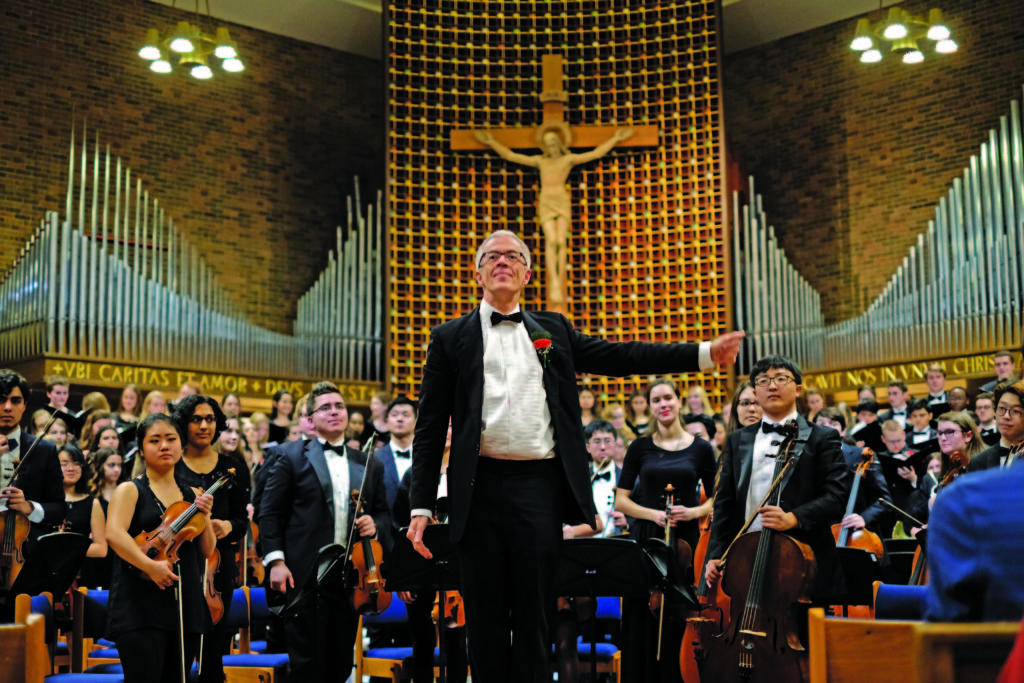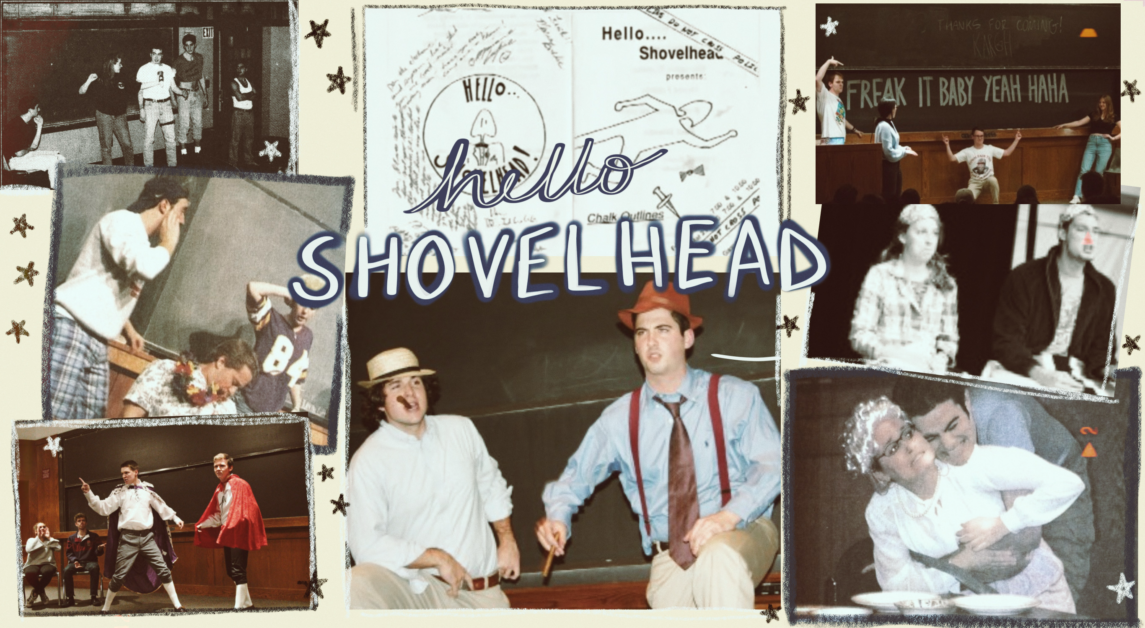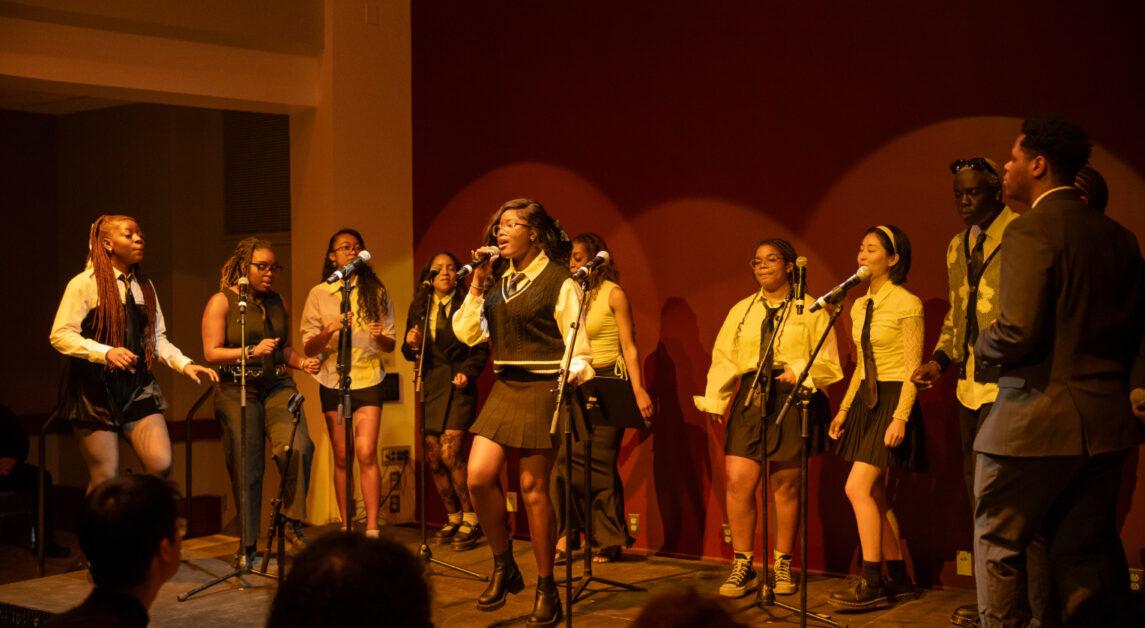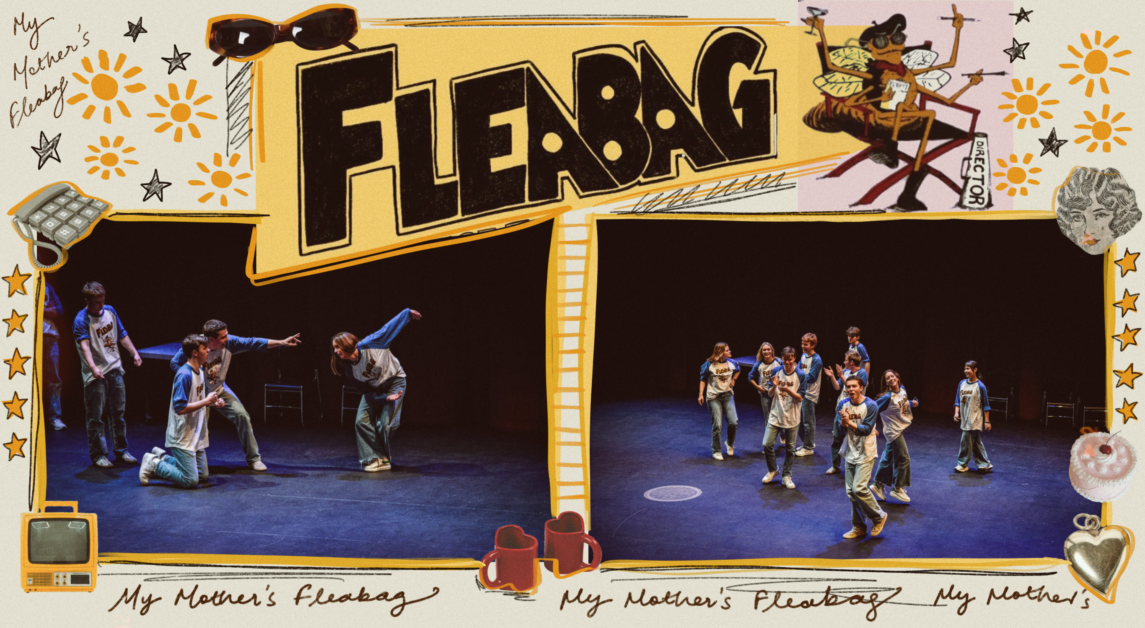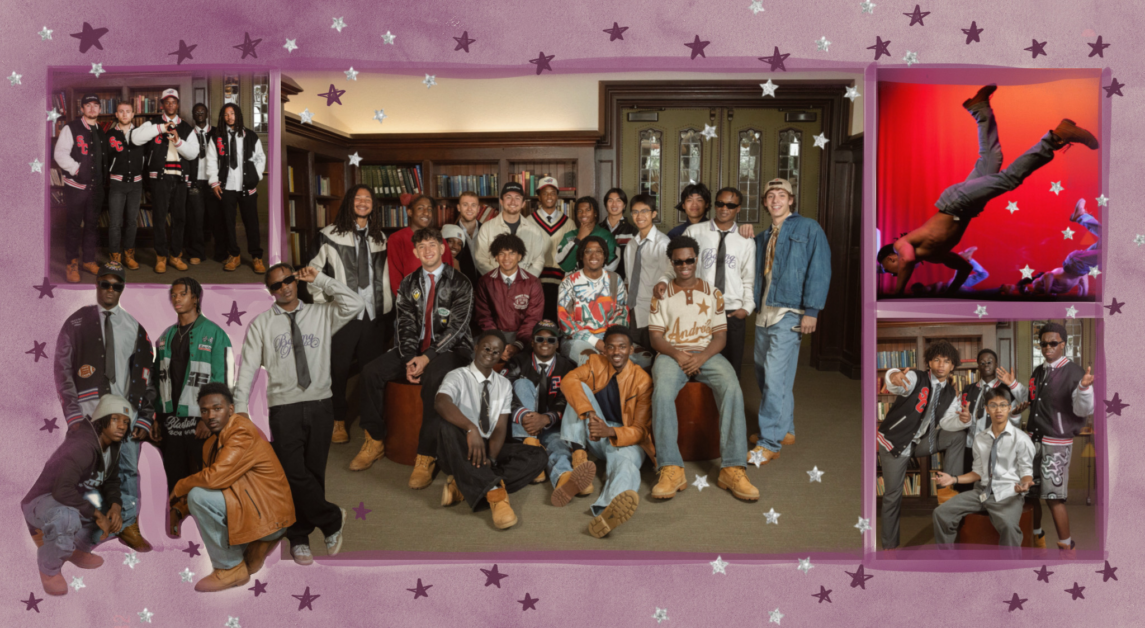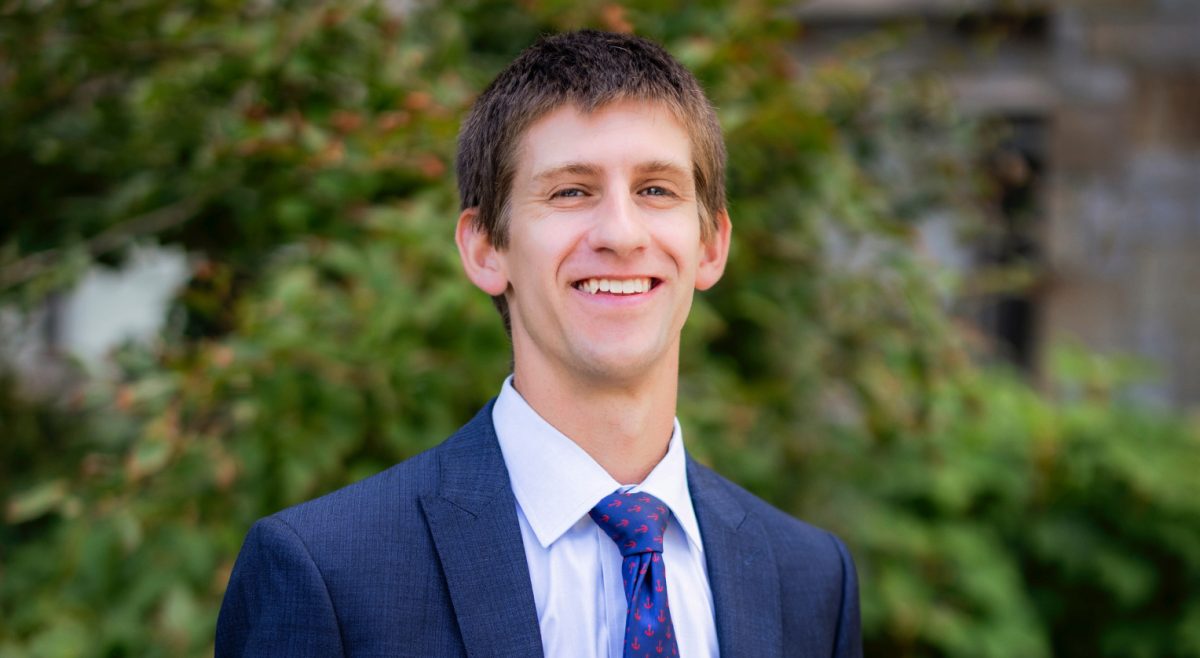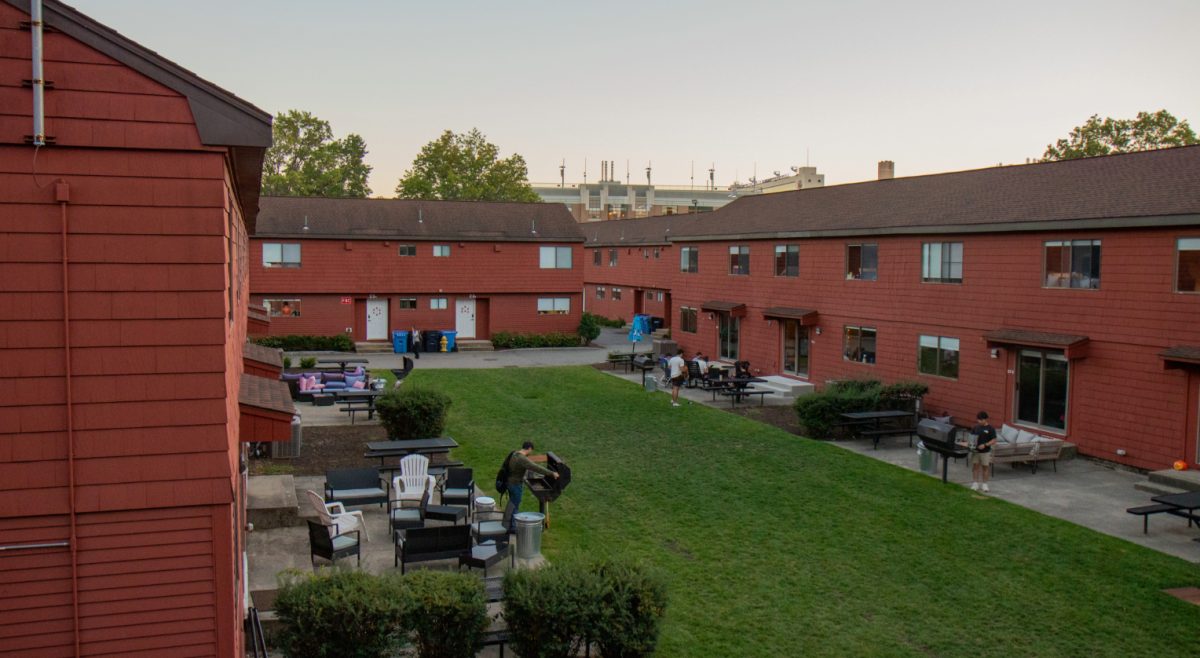John Finney, director of the University Chorale of Boston College and conductor of the BC Symphony Orchestra, rarely listens to music for fun. Driving in the car, he listens to CDs of the songs he’s working on with the Chorale or the Symphony Orchestra. When he works at his office in Lyons Hall, he works in silence. There is no background music echoing off the four white walls of the small room he sits in. Instead, the music flows through his mind. Background music is rather jarring, especially when it does not match the genre, decade, or even century of the song he is focusing on.
“The popular songs that I know, I know from hearing them at the gym,” Finney said. “I always have to ask students ‘What is the name of this song? It goes like this’ or ‘It has this line.’”
Finney has been the director of the University Chorale since 1993 and the conductor of the Symphony Orchestra since ’99, and over his 25 years at BC, he has had an enormous influence on the two groups and the music program as a whole. Finney has directed the Chorale on tours through Europe and has conducted the two groups at dozens of concerts over the years, including BC’s celebration of its 150th anniversary.
“John is the lifeblood of the Chorale,” said Eddie Dols, social director of the Chorale and MCAS ’18. “His energy and attention to detail make it possible for 160 kids with various levels of musical background able to perform high-caliber chorale pieces.”
There are two main components to Finney’s job. First, as the director of the University Chorale, he is responsible for running auditions every September to replace previous members and maintain a full chorale at 160 voices, both men and women. At these auditions, Finney hears about 100 voices and usually accepts around 60 people. Choosing these voices marks one of the more challenging aspects of Finney’s job. When listening to a voice, Finney looks for a few key things.
“Beautiful sound, confidence, matching pitch,” Finney said. “If I play a note, they need to be able to match that pitch exactly and control their voice.”
Finney demonstrated this more technical aspect of vocal quality. In someone’s audition, he’ll play a note from an instrument or simply sing the note to the potential member. If this person can match the note, they are one step closer to being accepted. Vocal control, however, is more nuanced. If someone matches the note, but their voice wavers up and down and they are unaware of this, that presents a problem. Finney explained that this is not necessarily a defect in someone’s voice, it only means that they have not yet learned how to control their voice with precision.
“I wish I had time to work with every single singer who auditions for us,” Finney said. “I think anybody can learn how to sing, and I think everybody can learn how to sing better.”
For Finney, singing better means being able to match pitch more consistently and produce a more appealing sound with regularity.
Some of the people who audition for the University Chorale admit that they have never sung in a choir before. But when they sing for Finney, if they demonstrate their ability to match pitch and Finney is happy to accept them. Unfortunately, there is a limit to the number of people Finney can accept, and some people who try out are simply not yet experienced enough.
When accepting auditionees, Finney must also consider the available spaces in each group of vocal ranges. There are four sections of the Chorale. Soprano and tenor are the higher female and male voices, respectively, while alto and bass are the lower female and male voices. The lines between these ranges are blurred, Finney explained, as almost any trained man or woman in their 20s can sing in either range with some competency. Usually, the singers are more comfortable with one or the other, but they can likely sing both.
Some of the students who are rejected from the chorale can be great singers, but there may simply be no room for them.
“Say we hear 100 people audition, and 80 of them are sopranos,” Finney said. “If I’m only looking for 20 sopranos, I have to be really, really selective.”
The other aspect of Finney’s role, aside from directing the Chorale, is choosing the music that they perform.
“I try to choose music that’s really challenging and really satisfying,” Finney said. “I tend to do mostly traditional, classical, sacred music with the Chorale.”
Finney usually selects sacred music first, both because BC is a Jesuit university and because most of the great landmarks in choral music were written and sung for the Church. An additional reason for nearly exclusively singing sacred music is that when the University Chorale goes on tour, it usually performs in European churches, where this type of music is required. There are exceptions to the sacred music for the Chorale, most notably the group’s yearly performance at Pops on the Heights. At the annual fundraiser, the Boston Pops sometimes request more popular songs that fit in with their setlist from the Chorale. Here, the Chorale has sung songs such as “Bohemian Rhapsody” and “The Circle of Life.”
Aside from performances at Pops on the Heights, most of the University Chorale concerts that are put on at BC are centered on a classical, and usually religious, work. This year the Chorale performed Mendelssohn’s Elijah, and in the past it has done a show on Mozart’s Requiem. If the concert consists of more than a single piece, however, Finney tries to select songs that are engaging for both the Chorale and the audience.
“I want it to be something that makes you want to sit up and listen to it,” he said. “There is a lot of music that can be sort of boring to listen to, and that’s the last thing that I want.”
This does not mean that every piece must be “fast and loud.” They can be slow and soft, yet still be very interesting to listen to and to sing.
Once Finney has settled on a piece that he knows will be engaging, he has to “sell” it to the Chorale. Some pieces that Finney knows people will love once they’ve learned them are quite unattractive at the start. When Finney first chose Sunrise Mass by the Norwegian composer Ola Gjeilo, he really had to work to impart his excitement about the piece to the members of the group. The piece starts with waves of sound that produce an incredible effect for the audience, but the experience of singing it is, as Finney describes it, “really quite weird.”
Finney works to introduce the music in such a way that the Chorale will trust him. To do so, he tries to mix in pieces that the singers can pick up in one practice while also balancing the very challenging pieces that will take weeks of work to sound even passable.
The University Chorale often collaborates with the BC Symphony Orchestra when they perform.. This unity is how Finney ties together his roles in the Chorale with his conducting of the Orchestra.
Many parts of his dual-role are quite similar. He must run auditions for the Orchestra in September every year in order to keep the total count of players near 50. He is also responsible for choosing the pieces for each performance by the Symphony Orchestra.
Many of the composers and works Finney selects are classics like Beethoven or Tchaikovsky, but he also often picks 20th- and 21st-century music that doesn’t appeal to him as much as a musician. He is not choosing the music for himself, but for the players. He recognizes that for many in the Orchestra and singers in the Chorale, their time at BC may be their last opportunity to play in a symphonic orchestra or to sing in a full chorale. Of course, there are students who are majoring in music so that they may go on to pursue this full-time, but many of Finney’s players and singers are studying to be nurses or accountants or lawyers. By varying the music between classic and modern pieces, Finney can provide them with as large and appealing a repertoire as possible.
“It’s my hope and my goal that every piece that they sing or play is engaging,” Finney said. “Every piece is something that they will always remember.”
Finney also has goals for every performance, Chorale and Orchestra alike, that he puts together. Depending on the pieces selected, Finney will use to the players and singers to evoke different emotions from the audience. When he set Sunrise Mass for the Chorale, he was trying to convey a sense of wonder and amazement from a piece that he was nearly positive none of the audience members had heard before.
In every performance, Finney tries to impart the countless hours of work put in by the players and singers to the audience without making it sound like such efforts took place. If the song or the music sounds like it is hard, the effect is lost. Finney seeks performances that the audience feels are effortless and yet knows were arduous, time-consuming, and challenging to make happen.
For the University Chorale and Symphony Orchestra’s recent Christmas concert, Finney sought a much simpler feeling. He wanted the audience to feel only joy—an overwhelming feeling of joy. For the concert, he selected songs that everyone knows and expects to hear like “Joy to the World” and “Silent Night,” while balancing the setlist with more elaborate and technically challenging pieces like the French carol “Ding Dong Merrily on High” and Beibl’s “Ave Maria.” In every concert, he must think of the audience, but the Christmas concert is an especially telling case study for this practice. The audience arrives expecting to hear familiarity, while wanting to hear novelty. Finney and the Chorale meet and exceed the audience’s expectations by inviting them to sing along to four or five of the familiar and timeless pieces. But the Chorale, the Orchestra, and Finney are quick to turn around and display a tour-de-force of talent with an entirely new and complex song that will have the audience marvelling. Finney creates an exciting mixture of vocals and instrumentals every single show.
His ability to craft this elixir of sound keeps audiences coming back to these performances again and again. Finney’s ability to direct and conduct singers and players to new levels of performance keeps students coming back to the Chorale and Orchestra year after year. By maintaining this high level of interest, excitement, and enjoyment, Finney can honor his personal philosophy for his work.
“Music is only music if it’s heard by people,” he said.
Featured Image by Sam Zhai / Heights Staff

